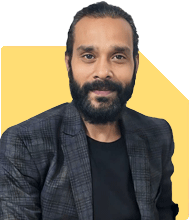Which Country is Best for MBBS: Russia or Others in 2023?
Dr Pananjay K Tiwari | Answer |Ask -Follow
Study Abroad Expert - Answered on Nov 07, 2024
They also guide PhD students who are studying internationally with their research.
Dr Pananjay has 21 years of academic and research experience and has published several books and research papers in various Indian and international journals.
He is a gold medallist with a master’s degree in science and a PhD in environmental sciences from the Hemvati Nandan Bahuguna Garhwal Central University, Uttarakhand.... more

Keeping in view the present scenario which country is preferable for MBBS , Russia or other
For more details you can visit us at www.shreeoverseaseducation.com
You may like to see similar questions and answers below
Dr Nagarajan J S K |2575 Answers |Ask -Follow
NEET, Medical, Pharmacy Careers - Answered on May 26, 2025
Dr Shyam Jamalabad |107 Answers |Ask -Follow
Dentist - Answered on Dec 05, 2025
Dr Shyam Jamalabad |107 Answers |Ask -Follow
Dentist - Answered on Dec 05, 2025
Dr Dipankar Dutta |1836 Answers |Ask -Follow
Tech Careers and Skill Development Expert - Answered on Dec 05, 2025
Ulhas Joshi |280 Answers |Ask -Follow
Mutual Fund Expert - Answered on Dec 05, 2025
Dr Dipankar Dutta |1836 Answers |Ask -Follow
Tech Careers and Skill Development Expert - Answered on Dec 04, 2025
Ravi Mittal |676 Answers |Ask -Follow
Dating, Relationships Expert - Answered on Dec 04, 2025
Anu Krishna |1745 Answers |Ask -Follow
Relationships Expert, Mind Coach - Answered on Dec 04, 2025
Anu Krishna |1745 Answers |Ask -Follow
Relationships Expert, Mind Coach - Answered on Dec 04, 2025
Mayank Chandel |2562 Answers |Ask -Follow
IIT-JEE, NEET-UG, SAT, CLAT, CA, CS Exam Expert - Answered on Dec 04, 2025
Mayank Chandel |2562 Answers |Ask -Follow
IIT-JEE, NEET-UG, SAT, CLAT, CA, CS Exam Expert - Answered on Dec 04, 2025
























